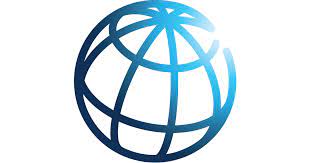The World Bank, comprised of the International Bank for Reconstruction and Development, the International Development Association, and 189 member countries works to end extreme poverty within a generation and boost shared prosperity. Poverty reduction through an inclusive and sustainable globalization remains the overarching goal of the Bank’s work.
The World Bank works in many sectors including agriculture, fishing, and forestry; public administration, law, and justice; education; finance; health and social services; energy and mining; transportation; and water, sanitation, and flood protection among others. Part of the TerrAfrica Partnership, the World Bank supports cutting edge analytical work, knowledge sharing and innovation, as well as large scale land restoration that contributes to sustained poverty reduction and economic development. The World Bank Group is a main partner of the African Resilient Landscapes Initiative (ARLI), which is implemented through forest and ecosystem restoration, biodiversity conservation, climate smart agriculture, and rangeland management. The World Bank supports the Great Green Wall for the Sahara and the Sahel Initiative—a trans-African program that aims to strengthen the resilience of the region’s people and natural systems—through the Sahel and West Africa Program, active in 12 countries.
The World Bank worked with partners to design and launch the AFR100 initiative, and has earmarked $1 billion to support sustainable landscape management in Africa.
Focus countries within AFR100: Benin, Burundi, Cameroon, Central African Republic, Cote d'Ivoire, Democratic Republic of Congo, Ethiopia, Ghana, Guinea, Kenya, Liberia, Madagascar, Malawi, Mozambique, Niger, Rwanda, Senegal, Tanzania, Togo and Uganda

